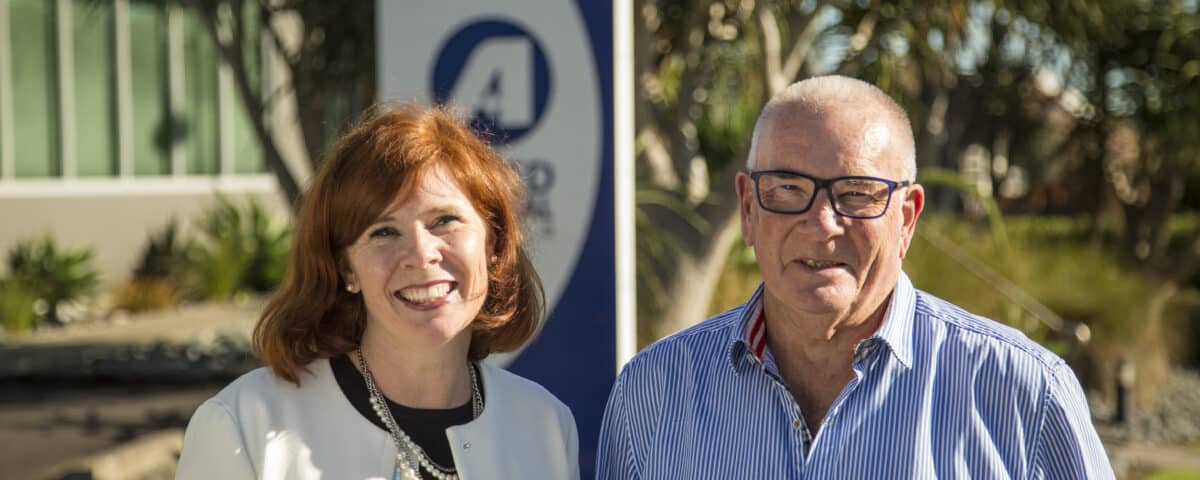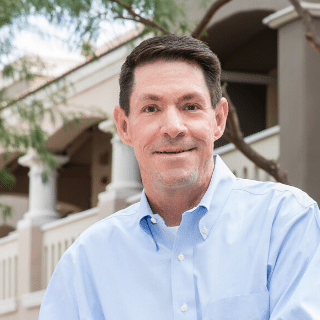Breaking down walls: How open-source software drives entrepreneurial activity globally
May 22, 2024North America’s biggest maker of vinyl LPs made 10 million records last year. Why it’s experiencing a resurgence.
June 5, 2024By Verne Harnish
Katie Noble, managing director of Allied Medical, has built her business around her vision to help New Zealanders live their lives with dignity. The company, founded 25 years ago, provides assistive technology, from walkers and canes to high-tech wheelchairs. It also offers training, education and events to educate customers about assistive technology.
Noble started the business with her father, Ken, in 1998. She discovered the Scaling Up methodology as a member of Entrepeneurs’ Organization New Zealand and had soon read my book Scaling Up: Mastering the Rockefeller Habits 2.0. Looking for help in implementing the platform, she began working with Scaling Up Certified Coach Adrian Pickstock in 2019. She had recently restructured the company.
Today, the 50-person company is seeing 25% year-on-year revenue growth—and its team is more committed than ever to its mission. “A lot of people don’t have a connection to making a difference through their work,” says Noble. “When you do, you always do a bit extra, because your work is about the people you help.”
Unblocking a bottleneck
Back in 2019, Noble knew that too much of the work of the business was flowing through her. She hired a general manager so she could step back but knew she also needed to build a stronger leadership team.
Under Pickstock’s guidance, she focused on getting the right people into the right roles, so the company was not as dependent on her involvement. “I knew I was the bottleneck,” she says.
Sharpening a strategy
When Allied Medical began working with Pickstock, says Noble, “I knew our strategy needed some TLC.”
One key step was getting clear on its Big Hairy Audacious Goal (BHAG). “We struggled with this,” says Noble. “We spent hours and couldn’t quite get it, but Adrian persevered with us.”
The company decided its BHAG would be to empower 300,000 New Zealanders to live their lives with dignity. “We know we are right on track to achieve this by 2030,” says Pickstock. “Every month, we measure this, noting the names of New Zealanders who have our products. It is so meaningful for us, and a goal we live every day.”
Improving communication
As the company has scaled, Noble and her leadership team have emphasized open and honest discussion of the company’s strategy. That has led to greater team cohesion. “People feel they can say what they think, and it’s safe to do so,” she says.
With a coach on board, she no longer has to toggle between running team meetings and participating in them–allowing more focus on the big picture. “I get to be an observer,” she says. “I can see what’s happening and read the room more, and that’s great.”
To make sure the company’s strategy has cascaded through the organization, it uses surveys. “We just reviewed a recent engagement survey, and an incredible 100% of respondents know our goal and their purpose in performing that – an amazing result!” says Noble.
Prioritizing execution
Working with Pickstock, Allied Medical’s team put regular meeting rhythms in place, such as 10-minute daily huddles, monthly strategic planning sessions, and quarterly meetings, where they set key benchmarks. “Our Quarterly Rocks always keep us on task, no matter what’s happening,” says Noble. “Our Daily Huddles and the cadence on these has completely changed our business and the operation of our senior leadership team.”
Meeting regularly has kept the company’s strategic plan top of mind. “So many times, leadership teams will go to a strategic planning session, walk away, then file the plan away and forget to look at it,” says Noble. “That’s why the cadence of a monthly meeting with someone external, who has an intimate knowledge of your business, is second to none.”
Putting these rhythms in place has helped minimize interruptions during the day and sped the team’s progress. “We can keep moving at pace and things get dealt with straight away,” says Noble. “Nothing is left festering or waiting for a Friday meeting.”
Embracing giving back
With growth humming, Noble enjoys participating in several volunteer board positions at charities such as Harbour Hospice and Auckland Medical Research Foundation.
Meanwhile, there are more opportunities than ever to make a difference in the lives of companies as the company scales its impact. “This is such a lovely industry to work in because we’re about helping people,” says Noble. “It’s so rewarding to be out on the weekend with my kids and see someone in one of our wheelchairs, just living their life.”


